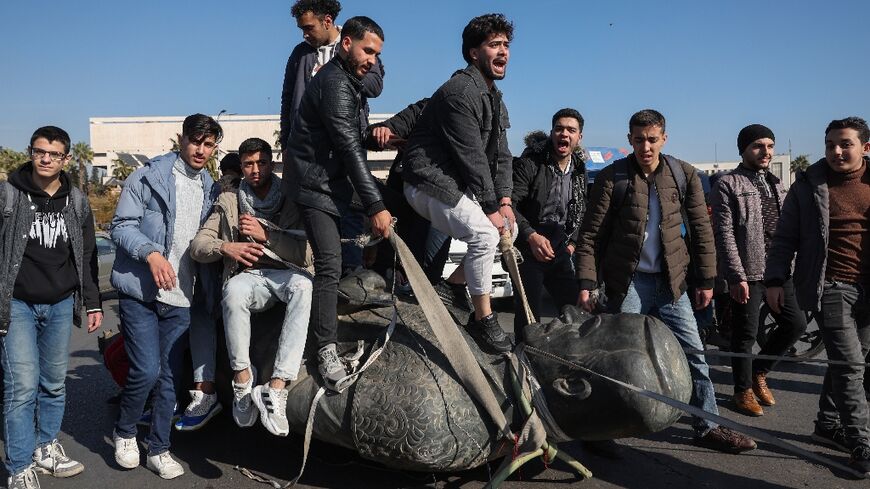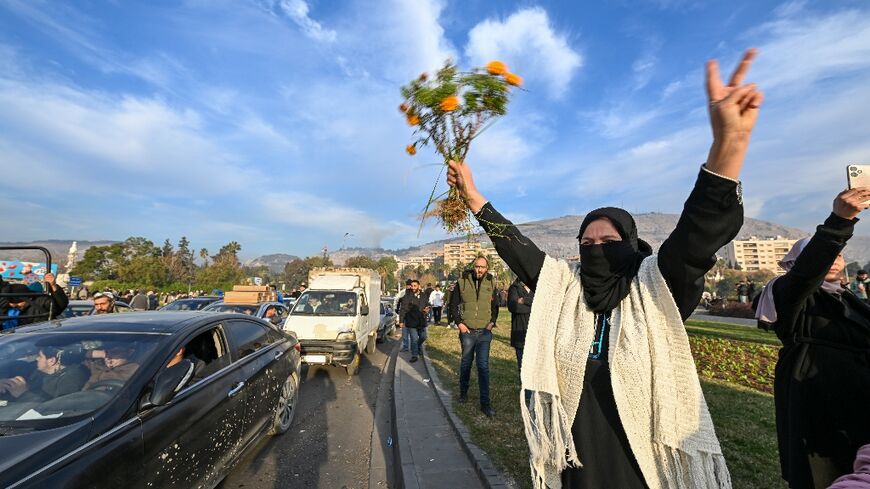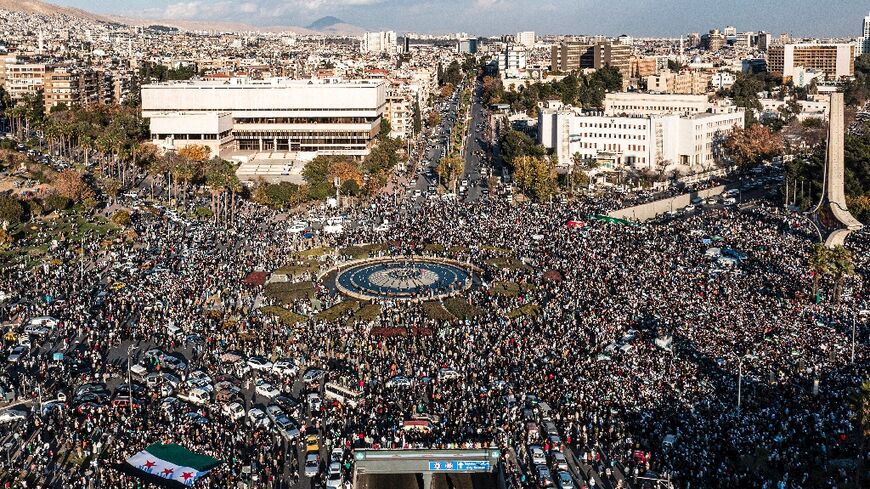Back in Damascus, rebel leader confident of post-Assad unity

Syrian rebel leader Riad al-Asaad told AFP on Sunday he was confident that the myriad of factions which helped topple Bashar al-Assad after years of war will now unite as one force.
Asaad, a former colonel, defected from the Syrian air force in July 2011, early in the Assad government's crackdown of democracy protests that spiralled into civil war.
He went on to found the Free Syrian Army (FSA), one of the main opposition factions during the 13-year war, and lost a leg in March 2013 in a bomb attack on his car in eastern Syria.
The longtime ruler was overthrown last week following a lightning offensive led by the Islamist group Hayat Tahrir al-Sham (HTS), which has since appointed an interim government.
The FSA's Asaad said he had been working closely with HTS and was sure that the new government would seek to unite the various rebel factions.
"It is natural that the revolution has gone through several struggles" that produced different factions sometimes with opposing ideologies, Asaad told AFP at a hotel in Damascus.
"But the truth is that what we have been striving for from the beginning" is "to have one single body", akin to a supreme military council, to lead the forces opposed to Assad and "to achieve victory", he said.
Sunni Muslim HTS is rooted in Syria's branch of Al-Qaeda, but it has sought to moderate its rhetoric in recent years.
Since toppling Assad, HTS and the transitional government have insisted that the rights of all Syrians will be protected.
Some other factions that have taken up arms against the Assad government represent religious and ethnic minorities, like the Kurds in northern Syria, or ideologies like secular nationalism.
Foreign powers have given varying degrees of support to their favourite factions, including Turkey which was quick to reopen its embassy in Damascus after the HTS takeover.
Assad's rule, in turn, was backed by Russia, Iran and Lebanon's Hezbollah movement.
- 'Justice' -
Asaad no longer commands the FSA, which in itself has become an umbrella for several groups, but he remains a leading figure and is proud to have returned to Damascus.
He said that together with the new HTS-backed authorities, he was working to unite armed factions under a revamped defence ministry, in the hopes that such a move would prevent in-fighting and reprisals.
"Our goal is forgiveness and reconciliation, but there must be transitional justice so that there is no revenge," he said, demanding that members of the ousted government face justice for crimes committed under Assad's iron-fisted rule.
Asaad also urged the international community to back the new authorities.
As the FSA had sought foreign backing during the war, in a bid to make it as short as possible, Asaad said that "today, we ask again to stand with the Syrian people... so that it is truly Syria for all the Syrian people".
The new Syria Asaad envisions would have "good relations with all the world's countries", he said.
But Russia, Assad's key backer which still has an airbase and a port is western Syria, should mend its ways, he added.
Moscow must "reconsider its calculations", Asaad said.
"It was an enemy of the Syrian people. We hope that it will abandon this hostility and be a friend."





